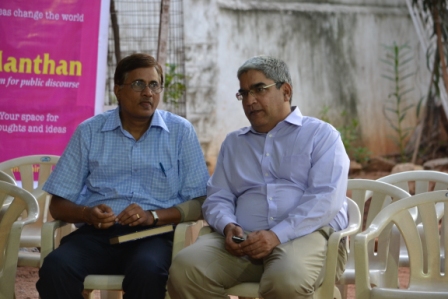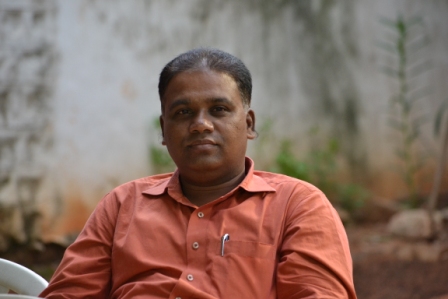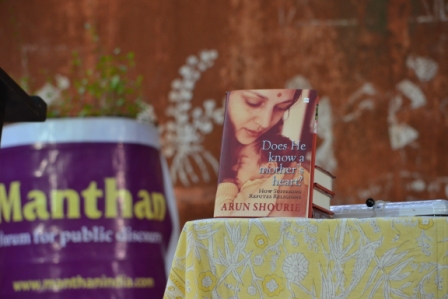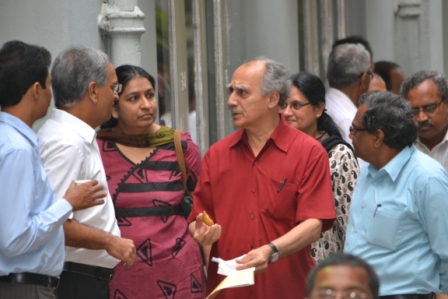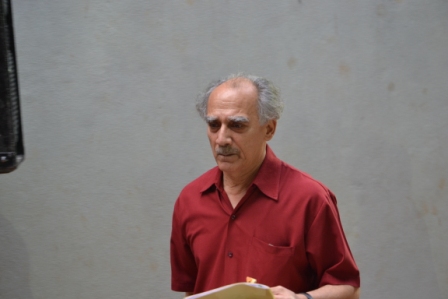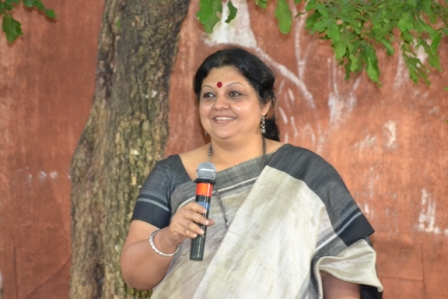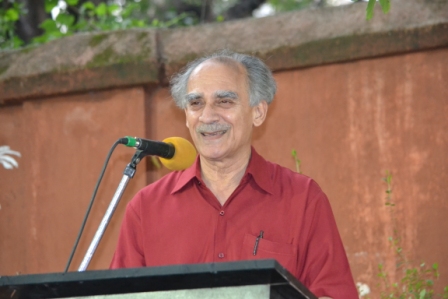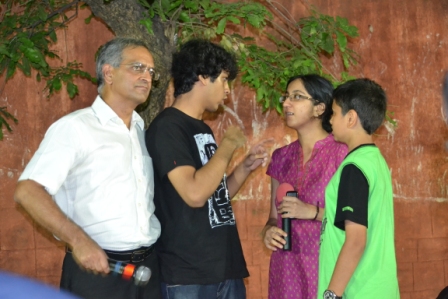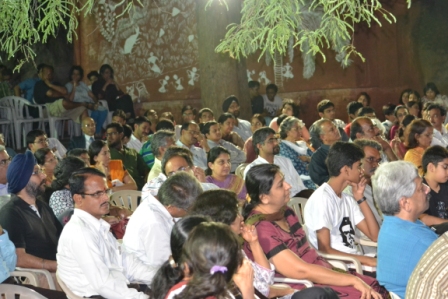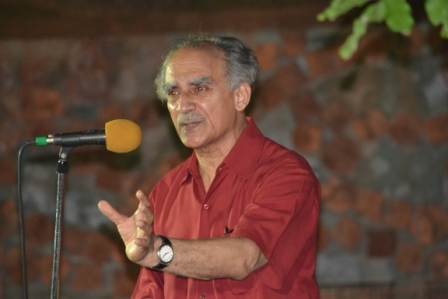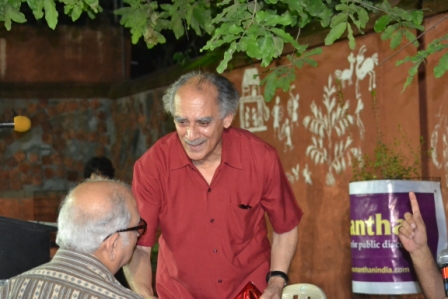The Talk
How can extreme suffering be so commonplace if there is a God who knows everything, who is all-powerful and also compassionate? How do the scriptures of our religions explain the existence of suffering? Do these explanations stand up to examination? Does our experience testify to a God? Or do the two demons— time and chance—explain all that we have to go through? In a devastating dissection of the scriptures—laced with accounts of the suffering and pain that he has seen at first-hand—Arun Shourie tells us why he has eventually gravitated to the teachings of the Buddha. And what lessons these teachings hold for our daily lives.
Arun Shourie spoke on how suffering refutes religions.
Arun Shourie
Arun Shourie is among India’s best known commentators on current and political affairs. Born in Jalandhar, Punjab (1941), he studied at St. Stephen’s College in Delhi and then obtained his doctorate in Economics from Syracuse University, USA.
Among other portfolios, he held the office of the Minister of Disinvestment, Communications and Information Technology in Mr. Atal Bihari Vajpayee’s cabinet. He was acclaimed as a “Star of Asia” by Business Week in 2002, as “The Business Leader of the Year” by The Economic Times jury for his pioneering and dogged work on privatization. In a poll of Indian CEOs, he was acclaimed as “The Most-outstanding Minister” of Mr. Vajpayee’s Government in early 2004.
He is the recepient of numerous national and international awards, including the Magsaysay Award and one of India’s highest civilian awards, the Padma Bhushan.
He has been an economist with the World Bank, and Editor of the Indian Express. He is widely regarded as the initiator of Investigative Journalism in India. The International Press Institute, Vienna, acclaimed him as one of 50 “World Press Freedom Heroes” whose work has sustained freedom of the press in the last half-century.
He has written 25 books on a variety of topics ranging from constitutional law, modern Indian history, religious fundamentalism, governance in India, to national security.

